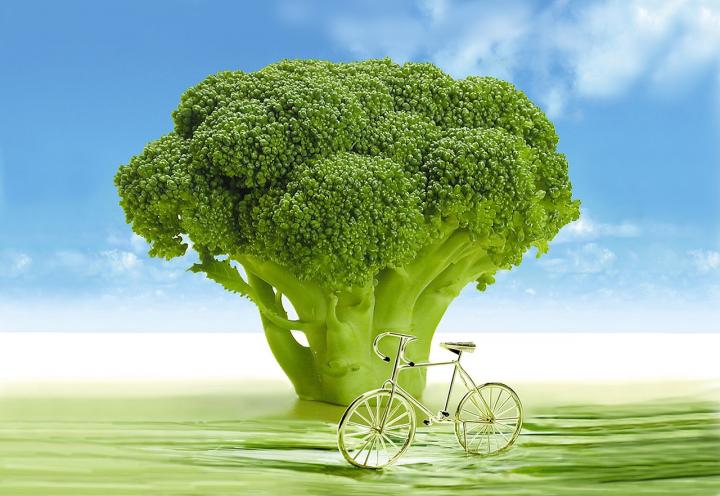






Broccoli has many health benefits that make it really good for you and your family, so even if you didn’t like it as a child, you may want to reacquaint yourself with this princely vegetable.
Broccoli is SO nutritious that you just need to embrace it!
Studies show great differences among broccoli varieties in the amounts of healthful phytocompounds they contain.
Maybe your mother made you eat broccoli way back when and you didn’t like it. But broccoli can be prepared in different ways, depending on your taste. Bear in mind that it’s easy to ruin broccoli by overcooking or smothering it in a heavy sauce.
When you do cook broccoli, cook it lightly to retain nutrients and maximum flavor. Try some new recipes and you’ll likely hear, “Encore! Encore!”
Caution: Broccoli and its close family members—kale, brussels sprouts, mustard greens, cauliflower—can (rarely) interfere with thyroid function in some individuals. But cooking apparently alters the isothiocyanates’ molecular structure, allowing most people to enjoy cruciferous vegetables and the health-promoting values they deliver. If you have concerns, consult your healthcare practitioner.
If you’re a home gardener, you’ll find broccoli easy to grow. See The Old Farmer’s Almanac’s growing guide to broccoli.
Plus, there’s a bonus: After you cut the main head, providing you’ve selected the right variety, a well-grown plant will keep producing “side shoots” (individual florets) until heavy frost shuts the whole garden down.
If you don’t have a garden, you can easily grow broccoli “microgreens” for salads and garnishes, which contain more of the healthful phytocompounds than mature leaves and heads.
~ By Margaret BoylesMargaret Boyles lives in a wood-heated house in central New Hampshire. She grows vegetables, keeps chickens, swims in a backyard pond in summer, snowshoes in the surrounding woods in winter, and commutes by bike whenever possible.
Health Benefits Of Garden Plants And Garden Styles
A few of health benefits of the fresh Bach flowers.
Five Hammock Health Benefits You Didnt Know
The Health Benefits of Frequent Carpet & Upholstery Cleaning
Aesthetics and Health Benefits of Homedics Rock Garden Fountain
Copyright © www.100flowers.win Botanic Garden All Rights Reserved